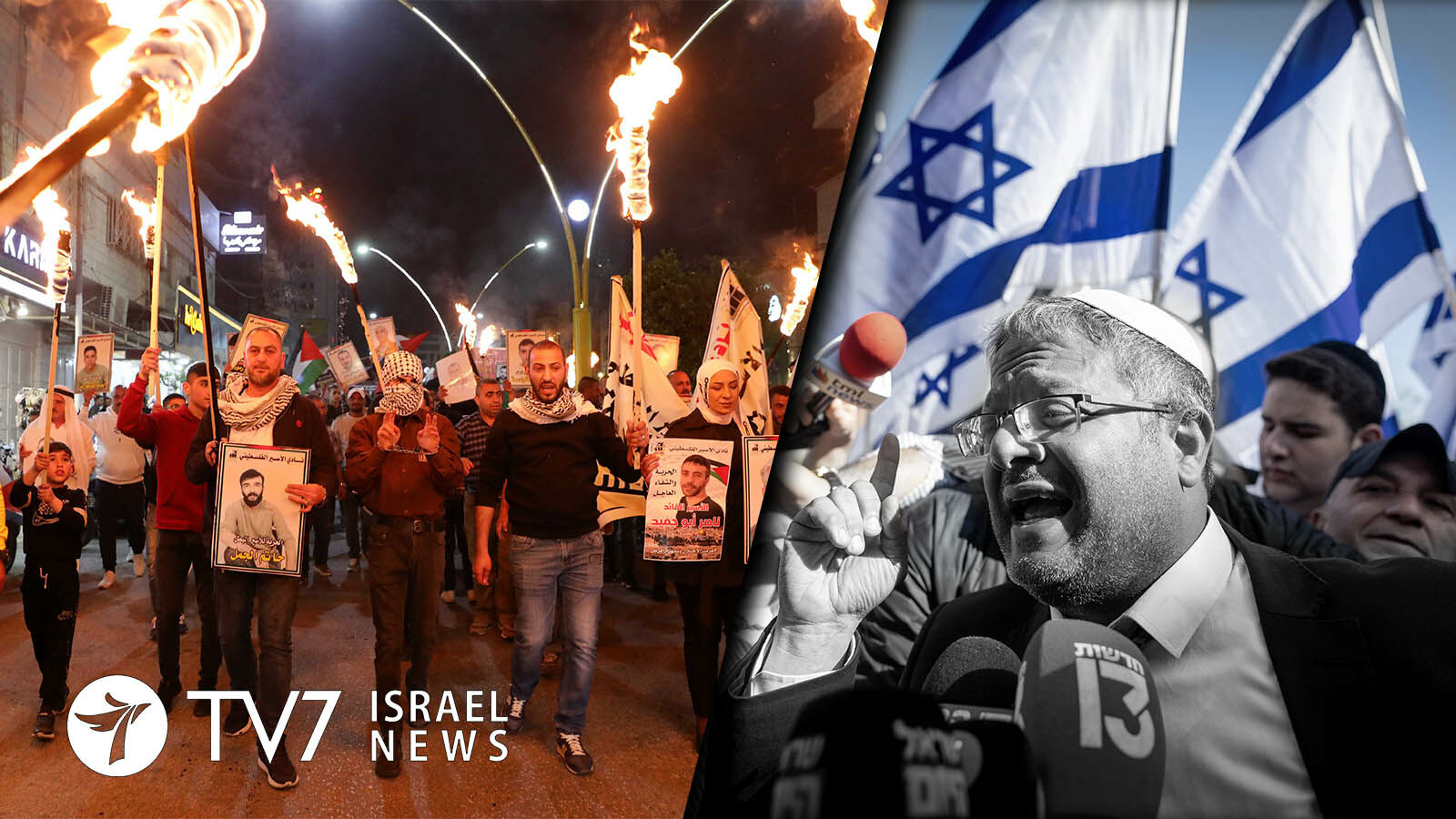Political consequences of violent riots by Islamist Palestinians on the Temple Mount are escalating danger to the precarious grip on power held the fragile ruling coalition led by Israeli Prime Minister Naftali Bennett.
By Erin Viner
As Israeli riot police continue to contend with Palestinian demonstrators in Jerusalem’s Old City, fault lines continue to deepen within the government.
The small but pivotal United Arab List (UAL) has announced that it is suspending its government membership over Israel’s handling of the violence raging at the Al-Aqsa Mosque compound during the Ramadan Islamic holy month, and will even consider officially resigning if the situation is not improved.
The UAL was the first party drawn from the country’s 21% Arab minority to join the 35th Israeli government, established last June with the cobbling together of a diverse alliance of liberal and Arab deputies.
The move comes in the wake of loss of Prime Minister Bennett loss of a his razor-thin parliamentary majority on 6 April when a lawmaker from his nationalist Yamina (“Rightward”) party resigned.
Knesset Member (MK) and Coalition Whip Idit Silman quit over ‘ideological grounds,’ proclaiming she was acting to preserve “the Jewish identity of the State of Israel.
The development leaves the Premier and his political partner Foreign Minister and Alternate Premier Yair Lapid in control of just 60 of the Knesset’s 120 seats, including four from the United Arab List.
The government was in no immediate danger of collapse over Silman’s departure as it occurred during the assembly‘s spring recess. A no-confidence vote in the government, requiring only a simple majority of 61 lawmakers, would force a new election.
Some political commentators have speculated that the UAL declaration may only constitute a symbolic gesture to relieve pressure from the faction’s leaders during the crisis; and that the matter could be resolved by the time the Knesset reconvenes next month.
In further efforts to preserve calm, Prime Minister Bennett announced that controversial far-right MK Itamar Ben-Gvir will be barred from visiting the Damascus Gate entry into the Old City, a flashpoint of Arab clashes with Israeli security forces.
A statement from the Premier’s office obtained by TV7 said he made the decision based on the recommendations from Public Security Minister Omer Bar-Lev, Israeli Security Agency (ISA, Shin Bet) Director Ronen Bar and Israeli Police Commissioner Yaakov “Kobi” Shabtai.
“I have no intention of allowing petty politics to endanger human lives. I will not allow a political provocation by Ben-Gvir to endanger IDF soldiers and Israel Police officers, and render their already heavy task even heavier,” said Prime Minister Bennett.
The Israeli leader nevertheless confirmed that the “annual flag march will be held, as always, on Jerusalem Day,” set to be held on 29 May.
The controversial event is traditionally held on Jerusalem Day, in commemoration of the city’s reunification after Israel captured the eastern side from Jordan in the 1967 Six Day War. Last year’s march came to abrupt halt on 10 May, when Gaza terrorists fired a barrage of rockets that marked the start of Operation Guardian of the Walls.
The annual parade of mostly nationalist right-wingers traditionally follow a route into Jerusalem’s Old City through the Damascus Gate, while cheering and waving Israeli flags, winding through the Muslim Quarter while making their way to the Western Wall Plaza.
